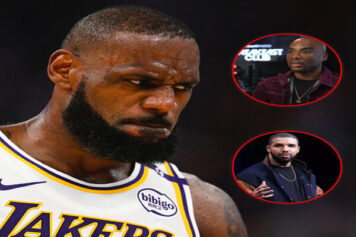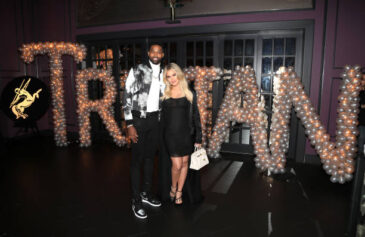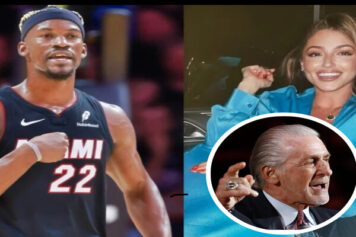(Editor's note: When Stern took over in 1984, the league was just coming off the '"too black" '70s era. He rode the Bird/Magic/MJ wave, but while doing so, he embraced the black athlete. He featured them. It is not a coincidence that the NBA gets "A"s every year in Richard Lapchick's diversity report card. The NBA is always light years ahead of other pro leagues when it comes to diversity. Head coaches, GMs, ownership, league execs — the diversity within those ranks is due in part to Stern's embrace and desire for the NBA to be inclusive. He's had his gaffes, his moments of kowtowing to pressure — and he's endured complaints about his treatment of black players during labor negotiations. But, among other things, he should be remembered as a culturally trailblazing figure in sports. Or should he? We gathered five TSL contributors — all seasoned NBA journalists/observers — to weigh in.)
Q1: If you take each sports commissioner's tenure and judge it solely on a record of diversity, inclusion and willingness to embrace black culture, is Stern the greatest commissioner of all time? And, if so/not, why?
SANDY DOVER: David Stern is definitely the greatest. The way he took the NBA from being “just a black league” with the bad rap (littered with cocaine addicts, tape-delay broadcasts) to the most global game outside of soccer has been a part of his genius. His willingness to establish real relationships with his players is beyond equal-comparison from his commissioner peers.
GLENN MINNIS: Stern dared to peddle the "blackest" sport to a white audience. That’s Magic Johnson pushing the break with Worthy on one wing and Coop on the other type vision. What made it all work, indeed makes Stern the most fair and progressive minded of any Commish to hold down one of the sport’s world big four, is his uncanny ability to make his players feel as if they truly had a say in it all.
VINNIE GOODWILL: On all three accounts, if you take the pluses and not the minuses, then the Emperor is the GOAT in our era. It's difficult to not think of the explosion led by MJ and Magic, but not think of dress codes, collective bargaining messes and overreactions just to save face with a public that didn't quite look like the players Stern was lording over. But, the league wouldn't have the standing in American culture – not just the African-American world – if Stern wasn't at the top.
MAURICE BOBB: David Stern definitely gets props for embracing black culture. Just troll his history of draft handshakes and you get concrete visuals for the billion-dollar league he built around African-American superstars. He embraced black culture because he had to. No choice. He was showcasing a league of extraordinary black gentlemen. And he made it work. He made it international. Simply put, MJ and Magic made it a game we wanted to watch, Stern made it a game we could watch.
MICHAEL TILLERY: The fellas all make excellent points. Yes, he is the GOAT. From being a lawyer for the NBA in Spencer Haywood's landmark Supreme Court case to ascending to the Commissioner, David Stern used what he's got to get what he wanted. Stern capitalized financially by efficiently marketing the predominately Black league seamlessly with the Hip Hop explosion of the last 20 years. Genius, because now…court-side…even White grandmothers will find shade under the Money Trees.
Q2: According to Lapchick's report card, for the first time in the NBA's history (or any other sport) there were more head coaches of color (53 percent) than white coaches, which, of course, mirrors the racial makeup of the rosters. Twenty-six percent of general managers were men of color. The NBA has led other sports in diversity for years. What, if anything, does this say about Sterns progressiveness, in particular?
VINNIE: If there's one stereotype Stern hasn't adhered to, it's the idea that players aren't astute basketball or intellectual minds. While we may say it's an easy transition to see players go from the court to the sideline, look no further than the NFL and MLB. The Rooney Rule isn't required in the NBA. You can't say Stern doesn't have a huge part in that, along with the faces we've seen and heard from representing the league on network television starting with the early ‘90s all the way to Chuck, Kenny, Chris, Steve, etc.
SANDY: Stern has led his legacy based on his goodwill, the prosperity and marketability of the league, which hits the bottom line of money. He’s a businessman – good-natured, I believe – but a businessman, nonetheless. You get paid when you build bridges. Stern’s progressiveness is a matter of making big bread and building a monument of high standards – he’s done both with little compromise.
TILLERY: Under Stern, the NBA hasn't been a league where No Brothers Allowed was a coded anthem. Hiring black coaches – once just the league's labor force – is beneficial to the bottom line. Players, in part because of familiarity with daily authority, should now begin to understand how business operates and also how basketball is taught to future faces looking of themselves. Idiosyncratic contention will always exist, but, because of Stern's progressive diversity model, the league will flourish.
GLENN: What’s benevolence got to do with it? Stern took over biz and built a dynasty, and did so by, not only recognizing, but staying true to what works. As more and more players of color became the face of League, hoops IQs of Doc Rivers, Avery Johnson and Mark Jackson have been put on full display. Stern has always made a point of refraining from taking credit for this movement, arguing that he simply advocates for the best candidates. Believe him.
MAURICE: Stern’s true legacy of diversity is definitely represented in the amount of blacks currently in head coaching and leadership positions. The NBA has long been the standard bearer for this in the professional sports ranks. Just look at the rampant racism in soccer to peep the flipside. But let's not kid ourselves here; all things won't completely be equal until we have an African-American commissioner of a sport, whether it’s in the NBA, NFL, MLB, NHL or MLS.
Q3: Many black people — especially younger black men — took special offense to Stern and the NBA's dress code. It was seen by many as a rejection of the hip-hop/black-youth culture that many identified with and a kow-tow to staid, ignorant, quasi-bigoted prejudices held by swaths of the American public and NBA audience. Did Stern have any other play, at that time? Was there a better way to handle things?
SANDY: A dress code wasn’t the wrong idea – the problem is that he didn’t create a better dialogue with the players, prior to his creation of the rule. Had he given the players a voice and initiated an honest dialogue, the players could’ve gone to bat for him. Instead, they rebelled with indignation, sensing that national prejudice was a factor in Stern’s ability to sell the league. Stern erred.
VINNIE: Sandy hit it on the head. By pulling an Emperor Stern move, and not maintaining an open dialogue with his players, it looked racist and, more importantly, to those of us who could read between the lines, it felt like pandering to a public that didn't understand current culture and didn't want to. If he came to the public, with players from the past who dressed as if there was a code in place (Isiah, Magic, 23, etc.) along with current players, it would've felt better. But he didn't.
GLENN: Nothing wrong with wanting, perhaps even expecting, a group of multimillionaires to, at least on occasion, look the part. But this is America, and, in the end, the choice should have been theirs It’s true, back then most of the NBA’s paying audience knew little to nothing at all about the Rockawear or Avirex threads players were draped in on the regular. With that in mind, Stern seemed desperate to send a message that he was in control and ruling with iron hand.
MAURICE: Keeping it 100 – the dress code was offensive when first instituted. It was a back handed slap to everything hip-hop. Stern could’ve used input from the black community, but who? Hindsight being 20-20, it helped the game become global because players were more presentable as a commodity. Oddly enough, now, NBA players are competing with each other in locker rooms to see who has the nicest suits, the best tailors, etc. Players have stylists now. Stylists!
TILLERY: Didn't agree at all, because I thought it was racist. But…the dress code should be applauded because it got the NBA on everyone's lips. GQ style originated with Julius Erving. Doc didn't dress in front of reporters, but, when he spoke into their mics, he was pressed in the sharpest of suits. That was passed to Mike, Kobe, Ray Allen and the Fab Five. Great for PR and the league is now the blueprint for fashion.
Q4: The NBA lockouts pitted to groups that shared a generation gap, a cultural disconnect and contrasting ethnic and economic backgrounds. Stern was in the middle of it all. Based on Stern's treatment of the players/union during those negotiations, did you ever suspect biases/prejudices were dictating the Commish's actions?
VINNIE: Once again, this was all about perception and Stern, from this seat, wanted to take advantage of every tactic possible to get what he wanted from a fractured union. There's question of whether he was led by the owners or vice-versa. But there was a general lack of respect on both sides, a disdain and lack of consideration – mainly from the owners to the players – about what they were worth and what they felt was best for the game. Even if negotiations, and, by extension, control of the narrative spun out of control, you'd have to say it came from the top down, right?
MAURICE: Stern Nas’d all the lockouts. You could hate him, but he had a job to do: bring the owners and players to an agreement. Stern had to keep the owners happy, but he also had mad respect for the players. It was the owners who had a lack of understanding for what the players wanted, but Stern took the fall for that.
SANDY: I had a bit of a hint of there being some ethnic disharmony, just because of who was sitting at the table – insanely rich, young, African American employees going head-to-head against even more insanely rich, middle-aged/older Anglo American bossmen. Just picture that the scene. It recalls something from a Chris Rock bit: wealth vs. rich; white vs. black; employers vs. employees. That’s a mountain of tension, in all cases.
TILLERY: Wrote something during stoppage, because players were afraid to talk, as Carmelo Anthony stated to me. Ownership exploited ignorance (LeBron aside), but, as players integrated foreign markets, a win developed. Barnstorming expanded global reach. Stern offered me this: "Hunger for our game is great. It was good for our players to be seen and to let fans of the world realize there's more than one global game as far as we're concerned and it's basketball."
GLENN: It wasn’t as much about racism as it was an attempted power play. Well, at least, that’s how it started out. When Stern wagged his finger in Dwyane Wade's face during negotiations the dynamics were that of an omniscient father scolding a petulant child. Before all was settled, things got so heated no one was really respecting anyone that was on the other side of the table.
Q5: With all this said, who should have replaced Stern and why?
SANDY: What better man than Oscar Robertson? The man was an All-America honoree in all levels of the game and survived the Civil Rights era. He led the charge to get players benefits? He teaches the game to the young anecdotally, he thoroughly understands the economics of basketball, and he’s one of the NBA’s greatest humanitarians. It just makes sense.
GLENN: Magic Johnson would be a natural. Can there be any dispute he more than fills all the prerequisites? Unmatched knowledge of the game, great business savvy and his marketing chops are off the charts.
VINNIE: I'm not feeling Magic. Could it be someone with experience on both the players’ side and executive side, someone we know has an Obama-like ability to come across the table to meet in the middle, yet has earned enough respect that nobody would try him? This may come from left field, but what about Joe Dumars? Classy, smart, astute and successful all around, along with being a straight shooter.
MAURICE: I can't rock with Magic, either. Or Oscar. He’s 73 years old, fam. Way too old to run an innovative league like the NBA. If we're solely looking at former players to step into the cypher, Joe Dumars works, but I'm thinking more along the lines of Charles Barkley. We need a no nonsense guy in that role. One who's not afraid to ruffle some feathers and stick up for the players, too.
TILLERY: BJ Armstrong. He played on one of the greatest teams along side arguably the NBA GOAT, worked TV and is now one of the most ambitious agents. BJ knows finance, has a great relationship with Stern and enough savvy to continue the commissioner's plan to make the game the best and most watched in the world. He's articulate, was a point guard and would be a great bridge between athlete and businessman.



